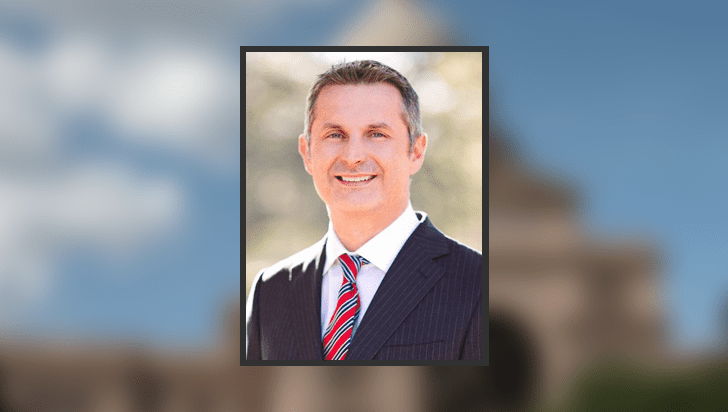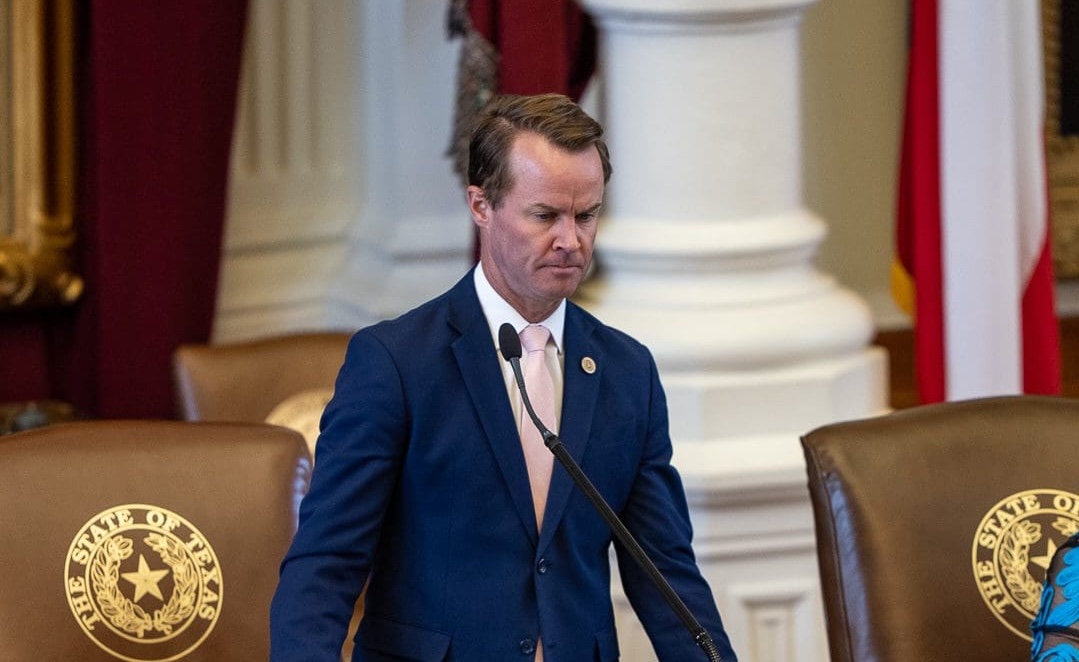In an interview with the Luke Macias Show, Republican State Rep. Tom Oliverson of Cypress explained how he would use the speakership to change the structure and culture of the House.
Oliverson, who announced his candidacy for House Speaker last month, said he will “give the voters what they voted for, which is actual representation.”
He described the results of the March GOP Primary as Texans “calling for a change.”
Oliverson also explained there is a “pattern of behavior” in House leadership that he doesn’t support—namely, lording power over members, pushing them around, and telling them how they have to vote.
The impeachment of Attorney General Ken Paxton last May came as a surprise to many House members, who did not expect it. While Oliverson was absent for the vote due to his son’s graduation that day, he said the entire affair was “so cloak and dagger and [he] just didn’t feel good about it.”
The Paxton impeachment played a featured role in the GOP Primary last month, as did several other issues important to voters.
“They’re saying to us, ‘No Democrat chairs.’ That’s three words,” explained Oliverson. “The simplest explanation [for Democrat chairs] takes a minimum of 10 minutes and it really doesn’t make a lot of sense.”
Banning Democrat committee chairs was a GOP priority for 2023. Incumbent House Speaker Dade Phelan did not allow a vote addressing the practice. Phelan went on to appoint eight Democrats to committee chairmanship positions and has said he will continue to do so.
While some claim this bipartisanship is important to the process, many conservatives have complained that it allows Democrats to kill conservative legislation.
Oliverson refuted the argument that Democrat chairs don’t kill conservative legislation. He highlighted as an example the National Motto Act of 2021 requiring schools to display the national motto if it’s donated. He said it only passed because State Sen. Bryan Hughes (R-Mineola) filed an identical piece of legislation in the Senate. Meanwhile, his own version, House Bill 1218, died in the Public Education Committee, chaired by Democrat State Rep. Harold Dutton.
“You give them power and then you’re surprised they use it?” Oliverson questioned.
Another change Oliverson intends to push is to speed up the process so the clock doesn’t run out before conservative priority legislation can be passed.
He explained this can be done by assigning committees early on in the session and prioritizing the governor’s emergency items from the beginning of session rather than waiting to act on them.
During the first part of the legislative session, the governor’s emergency items are the only items the House is constitutionally allowed to take up and consider. However, in the past, the House has waited to consider the governor’s items until later in the session, ultimately wasting that valuable time.
Oliverson said this slow start also contributes to the image of “good Senate, bad House” when the Senate is working late nights in February while the House is done at noon.
“That creates a perception amongst the electorate back home that is impossible to overcome,” he added.
He also explained that the relationship between the House and various other statewide officials such as Gov. Greg Abbott and Lt. Gov. Dan Patrick needs a reset “to work collaboratively and prioritize how things are going to go and who’s going to do what and how quickly can we move on to some stuff like that.”
To my knowledge, there’s not only a lot of conversations that were happening towards the end of the [last] session that were heated and angry and confrontational and unfriendly, [but] that just really doesn’t make for a productive session.
In addition to working for a more collaborative culture amongst the majority party leadership, Oliverson emphasized that he wants to work to return power to the members of the House rather than consolidating it all in the speaker’s office.
He said the big way a speaker could do this is by self-imposed term-limits. Oliverson committed to only serving two terms as speaker if elected, and then allowing someone else to come forward and lead the House.
“What I’ve observed over time is that people get comfortable. People like being in power. It becomes more of a game of holding on to what they got and keeping everyone else under their thumb so that no one rises up against them, and I think that’s counterproductive for the body as a whole. It suppresses new ideas; it suppresses new leadership,” said Oliverson.
The House Speaker’s race will be decided in December by the House Republican Caucus after the November elections.
Oliverson has committed to being elected by a majority of Republicans first, rather than a coalition of Republicans and Democrats and is advising other Republicans who enter the race to promise the same if they really want to change the status quo.
Speaker Phelan and former disgraced Speaker Dennis Bonnen both announced that the race for speaker was over—before the caucus had even met—by gathering together some Republicans along with a coalition of Democrats to back their speakership.
To watch the entire interview with Oliverson, click the link here.





